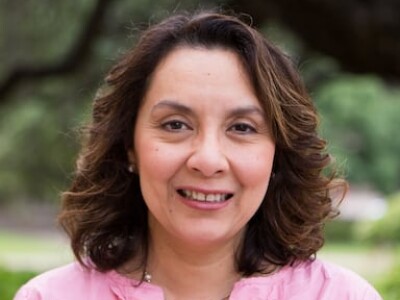Carmen Valdez watched the 2016 election returns in Phoenix, Arizona, with a woman she calls Luisa (not her real name). Luisa, who is from Mexico, is raising her two U.S.-born daughters without their father, who was deported back to his native country in Africa in 2009. In the same year, Luisa’s brother and sister-in-law were deported back to Mexico. They left behind three sons, who are under the care of Luisa’s parents. Luisa, who is about 40 years old, worked 12 hours a day to support her daughters after her husband’s deportation. This cost her health; she is almost blind because of late-stage diabetes.
“This family has gone through so much,” Valdez said. “I am from El Salvador, and I lived there during the civil war. I know first-hand how stressful it is for families to live in a society that is not stable. And I really see parallels between living during times of war and living as an immigrant in the U.S. today, when it’s like living in a type of war.”
Valdez, who has recently joined the Steve Hicks School of Social Work as an associate professor, has been researching the impact of immigration policy on the well-being of Arizona Latino families since 2010, when the state passed Senate Bill 1070.
The bill, commonly known as the “show-me-your-papers-law,” made it a state misdemeanor crime for an alien to be in Arizona without carrying proper identification, and required law enforcement officers to attempt to determine immigration status during stops, detention, or arrests.
At the time the bill was passed, Valdez was researching how Latino parents in Phoenix established relations with schools and communities.
“We started to see the effects of SB1070 on the families that were participating in our project. There was an increase in raids, an increase in people being stopped when driving, an increase in deportations… It really turned the community upside down. It was similar to what we have been experiencing more recently at the national level,” Valdez said.
To better understand the impact of SB 1070, Valdez started a new study that zeroed-in on five of the 3,000 families that had been recruited for the original project. Twice a year, Valdez and her research team traveled to Phoenix to conduct in-depth interviews with these five families — Luisa’s being one of them.
“Doing a large-scale, survey-based study is great, but you don’t really get to hear the voices of your participants,” Valdez explained. “I wanted to not only just say ‘people are afraid of deportation’ but I wanted to know exactly how they were afraid, and how they dealt with that fear. You only get to do by actually meeting people, talking with them, and entering their worlds and their lives.”

In 2016, the election season brought markedly anti-immigrant rhetoric at the national level. Valdez and her research team interviewed families specifically about the elections before they took place, during election week, and several months afterwards. This is why she spent election night with Luisa and her family.
“As the night progressed and it became clear that Trump would win, the mood in the room became quieter,” Valdez remembered. “Luisa was checking Facebook, and she showed us posts from friends. Many were jokes, but dark jokes, things like, ‘Now let’s line up and wait for the bus to take us back to Mexico.’ We understood that it was a way for them to cope, but it was very sad to see them resigning to the idea that it was over for them.”
Analysis of the interviews show that fear of family separation increased after the elections: some families planned what to do if a member was deported, and some parents talked more to their children about whom they should trust and whom they should not, even within their own communities and churches. As the Trump administration moved to terminate the DACA program —which gave temporary legal status to eligible immigrants brought to the United States as children — many parents regretted not having taking advantage of it.
“We really have seen the re-traumatization of these families; they are going through traumatic experiences that are similar to the ones in 2010, when SB 1070 passed,” Valdez said.
The research also uncovered great resilience in the face of adversity. Parents found strength in their love and desire to care for their children. Children and adolescents, in turn, were able to find comfort in their hopes and dreams — which researchers sometimes captured through art-driven activities. For instance, when asked what it meant to “have papers,” the adolescent son of one family talked about getting better jobs, traveling to Mexico to visit family, and having a driver’s license. Another adolescent boy talked about his dreams of traveling to a beach to see the ocean, and to a place where he could see the the sky “packed with stars.”
Valdez said that she and the members of her team understand how privileged they are to have been given access to the lives of these families.
“It’s a privilege to enter into their home, to talk about their lives and their vulnerability. Even to be able to have conversations about their immigration status is a privilege, and it requires a lot of trust-building.”
With that privilege, Valdez added, comes a deep sense of responsibility.
“So, what do we do with this information? We want to educate researchers, policy makers, and the public at large. We want them to know how meaningful the lives of these families are, and that the sacrifices they made should not be criminalized. Under the same circumstances, any parent would do what they have done for their children.”
By Andrea Campetella. Posted November 8, 2018.


